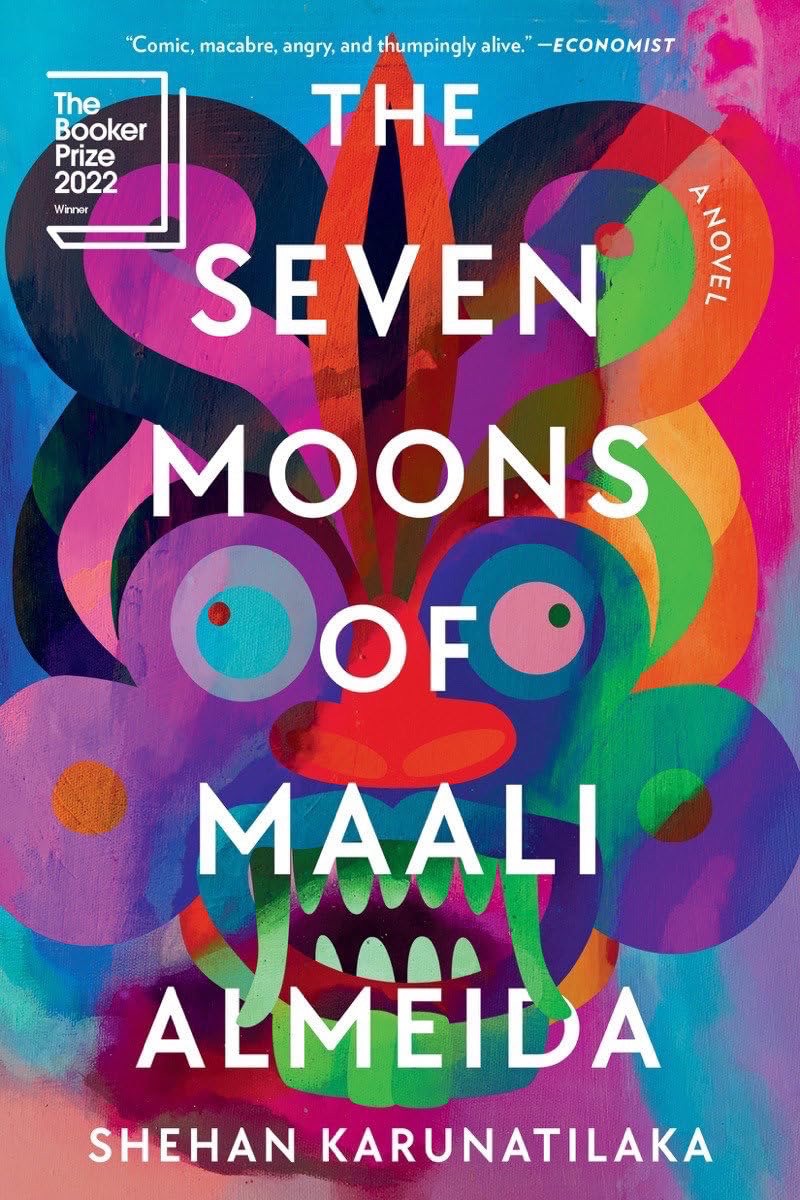Book Review | ‘The Seven Moons of Maali Almeida’ by Shehan Karunatilaka
‘A Highly Readable Novel Peppered with Insights’

Whether he’s working as a war photographer or fixer, betting his last chips at the blackjack table, or pursuing handsome young men, Maali Almeida can’t help but calculate odds and probabilities. In part this is because he was born and lives in Sri Lanka, a country disfigured by violence and corruption, but also because the risks Maali takes increase the odds that he’ll be killed by the army or kidnapped and tortured by the Tamil Tigers. No wonder Maali wears an amulet around his neck containing the blood of his lover, DD, while another necklace holds several cyanide capsules (just in case), and never ventures out without his lucky red bandana.
But in fact Maali’s luck expired because he’s detached from his broken and mutilated physical body, yet very much alive as a spirit, temporarily confined to the In Between, which, in Shehan Karunatilaka’s marvelous rendering, is a darkly comic Purgatory of long lines and tedious bureaucracy. Picture a chaotic DMV office jammed with disembodied spirits, many of them unhappy at being herded into unruly queues.
Other than that his death was violent, Maali doesn’t know exactly how he died or by whose hand or command. Discovering the truth of his demise is one element that propels the novel forward. Time is another, as Maali only has seven moons before transitioning to the Afterlife. Will this be enough time to put unfinished personal and professional business to rest, such as rescuing the boxes of unpublished photographs — evidence of atrocities that could implicate higher-ups in the government and the Tigers alike — stored beneath his bed in the apartment he shares with DD and Jaki?
Before Maali can do anything, he has to learn how the In Between works — the house rules and protocols. Despite a generally dissolute and unreliable nature, Maali is a quick study and very motivated to use his seven moons wisely. He connects with other souls, like Sena, who still burns with revolutionary fervor, and Dr. Ranee, who was murdered for protesting against the government, and they educate him. Here’s how Maali describes this new existence: “The Afterlife is as confusing as Before Death, the In Between is as arbitrary as the Down There.” Being a ghost isn’t dissimilar from Maali’s job as a war photographer: hours of boredom interspersed with moments of abject terror. Some of the ghosts roaming the In Between, like the shape-shifting Mahakali, are as malevolent as any of the government torturers who work in the Palace, a place from which very few emerge alive. When Jaki is abducted and taken there, Maali goes all out to rescue her.
The Seven Moons of Maali Almeida is Shehan Karunatilaka’s third novel and won him a Booker Prize in 2022. He’s a dexterous storyteller and in imagining his protagonist as a disembodied spirit capable of traveling on the wind and being both observer and observed, I detected hints of George Saunders and Mikhail Bulgakov, while his trenchant observations about official corruption reminded me of John le Carré: “The British sell us guns and the Americans train our torturers. What chance do any of us have?”
This highly readable novel is imaginative, comical, and peppered with insights about war and injustice, chance, friendship and love. But it’s also a meditation about a country traumatized by decades of warfare, ethnic violence, corruption, and foreign meddling. Sri Lanka’s unrelenting violence fosters a kind of madness. When choosing a side is potentially fatal, and remaining neutral is virtually impossible, gallows humor can be a coping strategy, even an act of defiance.
This review originally appeared in the California Review of Books.










